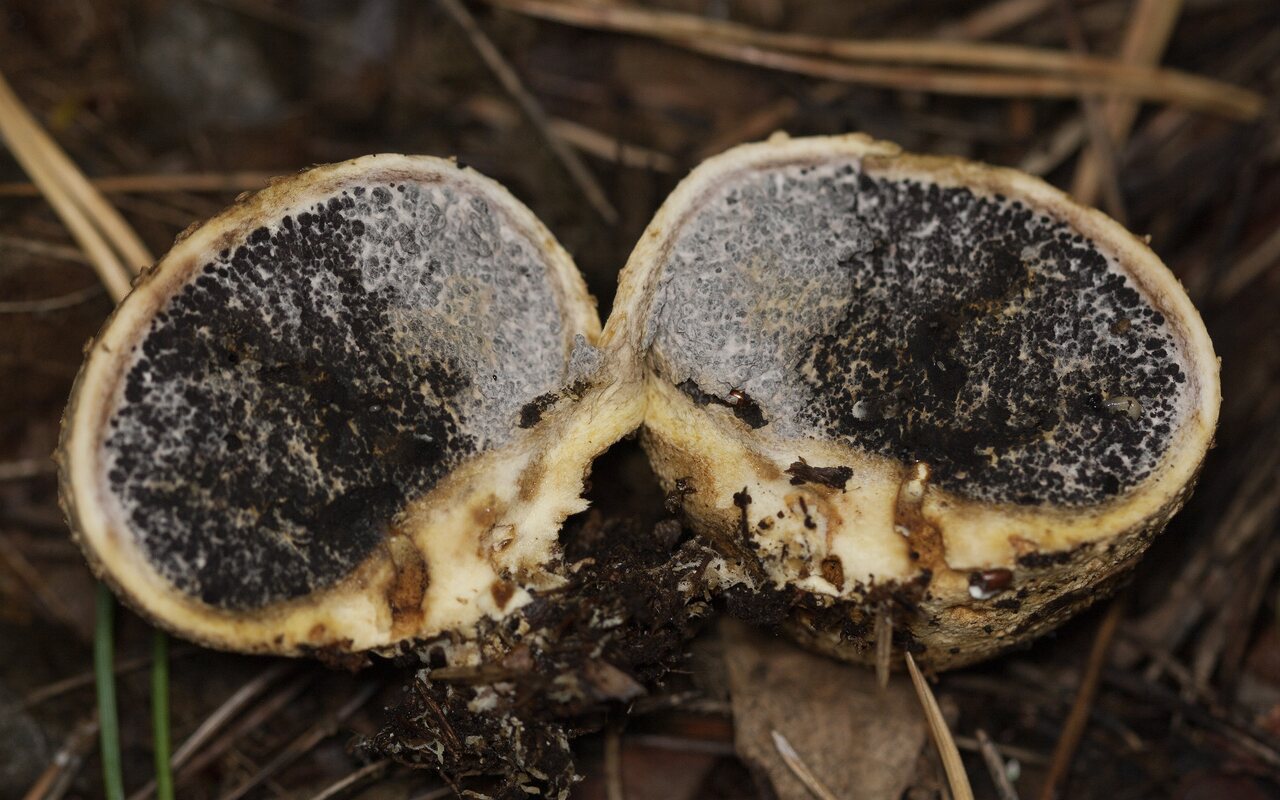
Scleroderma citrinum · paprastoji ankštenė
- Scleroderma aurantium, Scleroderma vulgare
- common earthball, pigskin poison puffball
- Dickschaliger Kartoffelbovist
- paprastoji ankštenė
- parastais cietpūpēdis
- tęgoskór cytrynowy
It is found in Europe and in North America. Typically 4 to 10 cm across and 3 to 6cm tall, the rounded fruitbody is stemless and attached to the ground by white mycelial threads, visible in the picture on the left. The tough thick skin of this earthball is initially white, cream or yellow and may turn ochre-brown or green as it ages; it is covered by a network of coarse scales of irregular shapes and variable size. Inside the earthball the spore mass is almost white at first but soon turns brown with white marbling before becoming purple-brown throughout. At maturity the skin ruptures leaving a large, irregular opening via which the wind and rain disperse the spores. Scleroderma areolatum is similar in appearance.
There are conflicting reports as to whether Scleroderma citrinum is seriously poisonous; however, it is generally considered as at best inedible and suspect and at worst poisonous.
Vaisiakūniai 3-10 cm skersmens, dažniausiai rutuliški, ochrinės spalvos gumbai, kartais po kelis suaugę į vieną kupstelį. Kotas rudimentinis, prie pagrindo su geltonu grybienos kuokšteliu. Trama jaunų grybų balta, perpjauta parausta, senesnių, bręstant sporoms, violetiškai juoda, išraizgyta baltomis gyslomis, kieta, stangri, kompaktiška, karti, nemalonaus kvapo. Auga liepos–spalio mėn. smėlinguose miškuose, pakelėse. Lietuvoje dažna. Šiek tiek nuodinga.
‥